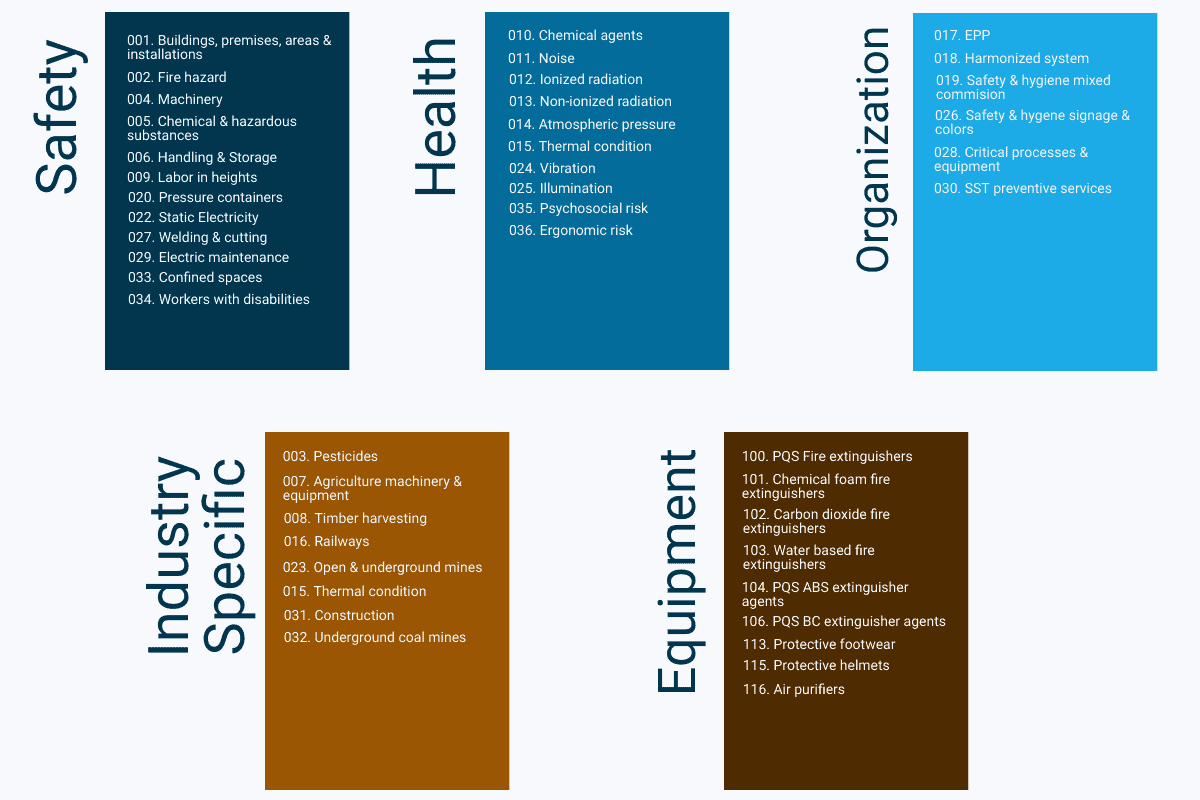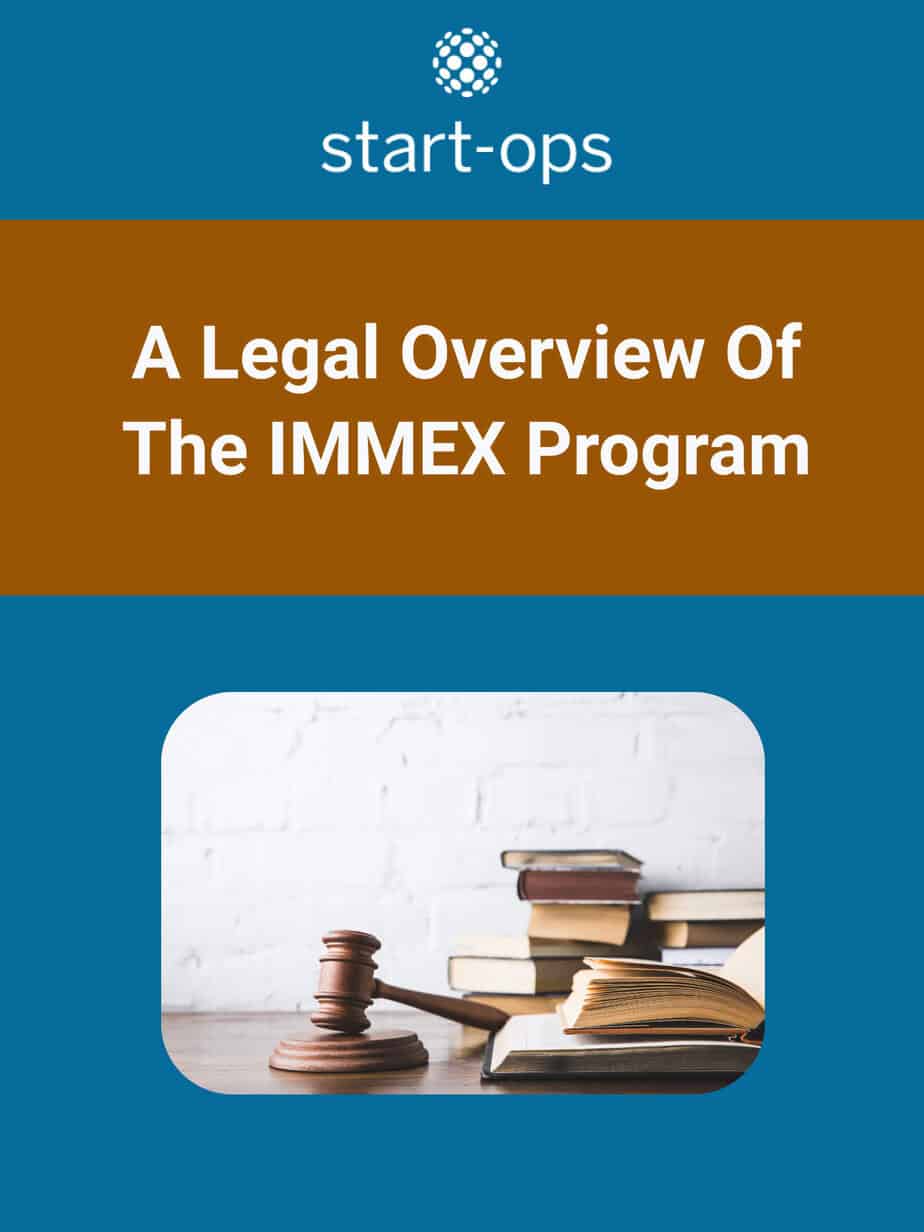Last updated on July 1st, 2025 at 02:28 pm
Labor laws in Mexico regulate the relationship between employees and employers. These laws regulate all employee benefits in Mexico, and they apply to manufacturing companies and nearshore software development companies in Mexico, although each may be concerned with different parts.
We wrote this article to give foreigners starting a business in Mexico a broad overview of labor laws in Mexico. So, please comment if you have a specific question.
Labor Laws In Mexico: The Legal Framework
As you will find out, Mexican labor laws are designed to protect the workers. Sometimes, this is to the extent of being unfair to the companies that employ them. The reason behind it is that, as with all other laws, labor laws in Mexico stem from the Mexican Constitution, written in 1917, right after the Mexican Revolution. Labor conditions were awful back then. Therefore, the law tends to protect the employee. This is not necessarily bad, although it leads to some bad practices.
Title Six, “On Labor and Social Welfare,” has just that one article. In Article 123 of the Mexican Constitution, the legislators tried their best to draft the entire basis for labor relationships in the country. According to Mexico’s law hierarchy, the Constitution is at the top. So, let us take a look at the most critical parts.
- The maximum working day is eight hours. Extra hours are paid double.
- Kids under 15 years of age are not allowed to work.
- Workers are entitled to one day of rest for every six days of work.
- There shall be a minimum wage.
- Mexican companies shall share a part of their profits with their employees.
- Unions and strikes are allowed.
- If a company terminates the labor relationship with an employee without cause, it must pay a severance equal to three months of the employee’s salary.
- Mexican workers have the right to Social Security.
The beginning of that article states that the Congress of the Union shall further create laws to regulate labor laws in Mexico.
Mexico’s Federal Labor Law
As stated before, Mexico’s Federal Labor Law stems from the Mexican Constitution. This law was first published in 1931, but a new law was published in 1970, abolishing the previous.
Since labor constantly evolves, this law has become a monster with nearly 100 chapters and 1,500 articles. As if that was not enough, the law has a regulation about the same size that further details its precepts. So, we will only discuss a few parts in this post.
One of the most critical parts of labor laws in Mexico, and one of the questions our clients ask the most, is the different types of labor contracts in Mexico. So let us take a look at that.
Labor Contracts In Mexico
One of the best practices you can have regarding labor laws in Mexico as a company is to sign a well-drafted contract with your employees. The company is responsible for having a written labor contract that complies with all the formalities stated in the law. So let us look at these formalities, stated in Article 25 of Mexico’s Federal Labor Law.
Formal requirements for labor contracts in Mexico.
- Particulars about the company and the employee, i.e., name, address, nationality, RFC, etc.
- Type of labor relationship.
- Services to be rendered.
- Work day length.
- The place where the services will be rendered.
- Salary amount.
- Payment day & place.
- Skills training.
- Others (vacations, Christmas bonus, etc.)
According to Mexico’s labor laws, every contract must include all these points to be considered valid. The second point, the labor relationship type, determines the contractual agreement to be drafted and signed. Let us see the different options companies have.
Types Of Labor Contract In Mexico
Temporary (Definite Period) Contract
This type of contract is signed by an employee for a specific time. Even though it sounds like a great option for the company, it is not as easy as just signing these types of contracts over and over with your employees. There are three situations where these contracts can be used.
- When the nature of the job is seasonal or temporary, e.g., a peak of demand at Christmas.
- When an employee will be substituted for another employee unfit to work (maternity leave, temporary disability, etc.).
- Cases like mining where the work is finished after the mine has been depleted.
Indefinite Period Contract.
This contract establishes a working relationship without a defined finish Labor laws in Mexico aim toward all labor contracts being of this type. For a labor relationship to be considered indefinite, it needs to be for longer than 180 days. However, since it would be too risky to hire someone indefinitely as soon as you meet them, the Federal labor law allows companies to establish a trial period for their employees, which would be another type of contract. This type of labor relationship also allows companies to set up a training period for the employees, which also would be another type of contract. Since it is an indefinite contract, the only ways to terminate the labor relationship are:
- Voluntary resignation of the employee.
- Justified termination by the company.
- Wrongful or unjustified termination by the company.
If a company terminates an indefinite period contract relationship without a reasonable cause, it must pay a severance equal to three months. This is a large liability for labor-intensive companies like Mexican maquiladoras (companies registered in the IMMEX program) and software development companies, because of the high wages.
Trial Period Contract
The idea behind this type of contract is for the company to be able to evaluate the employee before hiring him indefinitely. Regardless of it being a trial period, the company must grant the employee all the mandatory benefits like social security. If, at the end of this period, the company decides not to continue the labor relationship with the employee, it can terminate it without any responsibility. Which essentially means not paying the severance. The duration of this type of contract is as follows.
- Up to 30 days in most cases
- Up to 180 days in the case of directors, managers, and specialized professionals
Initial Training Contract
When an employee needs to learn a certain set of skills before being able to render the services needed, Mexico’s labor laws allow for a training period before signing an indefinite contract with your employees. This contract works well in cases where the employee has industry experience but lacks skills in the position he is applying for. Like with the trial period, at the end of the training period, the company can decide if it wants to continue the relationship with the employee and sign an indefinite contract or terminate the relationship there without any liability. The duration of this type of contract is as follows.
- Up to 90 days in most cases.
- Up to 180 days in the case of directors, managers, and specialized professionals.
The Institutions Related To Labor Laws In Mexico
Now that we have seen an overview of Mexico’s labor laws let us look at the institutions involved in their compliance. The Mexican labor law system is administered by several government agencies, including the Ministry of Labor and Social Welfare (STPS) and the Federal Conciliation and Arbitration Board (FCAB). Let us take an in-depth look at these institutions.
Ministry of Labor and Social Welfare
The Ministry of Labor and Social Welfare (MLSW) is the government’s institution in charge that companies comply with Mexico’s labor laws. In other words, they protect Mexican workers’ rights. This Ministry is in charge of further regulating labor in Mexico by issuing official mandatory standards known as NOMs (Norma Oficial Mexicana). There are 44 labor-related NOMs classified into five different categories.
- 12 Labor safety standards to reduce accidents in the workplace.
- 10 Labor health standards to prevent diseases in the workplace.
- 6 Organization-related standards to manage workplace human, material, and financial resources.
- 7 Industry-Specific standards.
- 9 Equipment-related standards that regulate the equipment needed in the workplace (fire extinguishers, special footwear, etc.)

Federal Conciliation and Arbitration Board
The Federal Conciliation and Arbitration Board (FCAB) is responsible for solving conflicts between companies and their employees. It is the referee, while the rules are the labor laws in Mexico. The Ministry of Labor and Social Welfare supervises the FCAB. However, it is an autonomous entity that handles its own affairs.
Whenever there is a labor conflict and a lawsuit, the FCAB analyses it and calls in both parties; the company’s legal representative and the employee. What the FCAB pursues is to conciliate (hence its name) or, in other words, settle the dispute. It always aims toward negotiation.
Let us see how this work step-by-step.
- Reception of the lawsuit. The FCAB receives the lawsuit in written format. On the next day, the audience where both parties must assist will be scheduled in the following 15 days.
- Audience first phase. On the day of the audience, the parties go through a conciliation phase, where no lawyers are involved.
- Audience second phase. If the conflict is not solved, each party can get their lawyer involved in the next phase to elaborate their case further.
- Audience third phase. If the conflict is still not solved, the next is an admission of evidence phase, where the party that sued must prove its case.
If, at any moment, the conflict is resolved, the audience stops. This is usually done in written form. About 99% of the cases that go through the FCAB are severance payments. One of the most common bad practices related to labor laws in Mexico is “severance hunting.” These are employees looking for jobs, and as soon as their probation period is over, they do their best to get fired. Since the law greatly protects employees, they usually get away with a decent amount of money. The way to prevent this is to have a well-drafted Internal Work Regulation, like the company’s game rules.
Conclusion
Mexico has a complex labor law system designed to protect workers’ rights. Mexico’s primary labor law source is the Mexican Federal Labor Law (LFT). The LFT sets the minimum wage standards, working hours, overtime pay, vacation time, and other employment benefits.
To summarize, the labor laws in Mexico are:
- Article 123 of the Mexican Political Constitution.
- The Mexican Federal Labor Law
- The Mexican Social Security Law
- The Official Mexican Standards issued by the Ministry of Labor and Social Welfare


